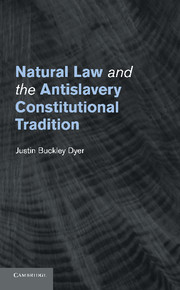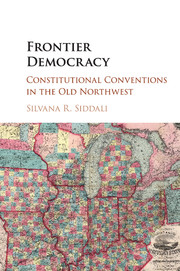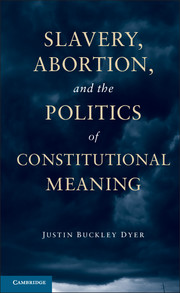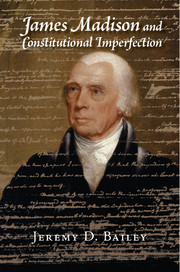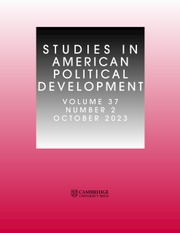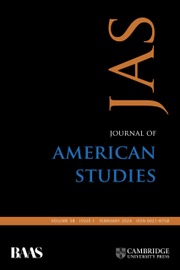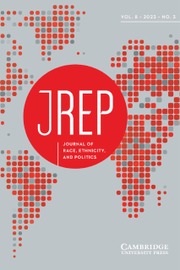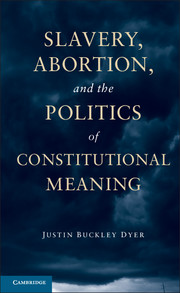Natural Law and the Antislavery Constitutional Tradition
$26.99 (C)
- Author: Justin Buckley Dyer, University of Missouri, Columbia
- Date Published: December 2014
- availability: Available
- format: Paperback
- isbn: 9781107454354
$
26.99
(C)
Paperback
Other available formats:
Hardback, eBook
Looking for an examination copy?
If you are interested in the title for your course we can consider offering an examination copy. To register your interest please contact collegesales@cambridge.org providing details of the course you are teaching.
-
In Natural Law and the Antislavery Constitutional Tradition, Justin Buckley Dyer provides a succinct account of the development of American antislavery constitutionalism in the years preceding the Civil War. Within the context of recent revisionist scholarship, Dyer argues that the theoretical foundations of American constitutionalism – which he identifies with principles of natural law – were antagonistic to slavery. Still, the continued existence of slavery in the nineteenth century created a tension between practice and principle. In a series of case studies, Dyer reconstructs the constitutional arguments of prominent antislavery thinkers such as John Quincy Adams, John McLean, Abraham Lincoln, and Frederick Douglass, who collectively sought to overcome the legacy of slavery by emphasizing the natural law foundations of American constitutionalism. What emerges is an understanding of American constitutional development that challenges traditional narratives of linear progress while highlighting the centrality of natural law to America's greatest constitutional crisis.
Read more- Succinct account of the development of antislavery constitutionalism
- Lucid and engaging prose
- Combines normative and empirical analysis
- Written against the backdrop of recent revisionist scholarship
Reviews & endorsements
“Justin Dyer has provided a powerful reminder that there was nothing inevitable about the end of slavery. He has also given us a subtle study of the relationship between natural law and the Constitution during one of the critical re-foundings in American political development. This is a timely reminder that there is nothing inevitable about constitutional politics.”—Jeremy D. Bailey, University of Houston
See more reviews“Justin Dyer issues a bold defense of an anti-slavery constitution now under attack by revisionists. His emphasis on the natural rights foundation of the constitution and anti-slavery movement is an important analysis of the great cause of nineteenth century American constitutionalism.”—Mark Graber, University of Maryland
“Justin Buckley Dyer’s study is a sustained effort to vindicate the righteousness of the American constitutional founding through the recovery of its antislavery ideals, rooted in natural law. The book is a worthy addition to the literature of antislavery constitutionalism in America – and is especially valuable in the contributions it makes to our understanding of the wellsprings of key elements of the constitutional thought of Abraham Lincoln.”—Ken I. Kersch, Boston College
“This lucidly written, precisely argued, and carefully researched essay does two things at once: It situates nineteenth-century antislavery constitutionalism in the context of natural law and liberal theory, and it assesses the natural law and modern liberal accounts of American constitutionalism by applying them to the critical test, namely, their power to explain the debate over slavery that led to the Civil War and emancipation. Justin Dyer writes with moral clarity and historical circumspection, and he has produced the best introduction to this critical subject that I know.”—James R. Stoner, Louisiana State University
“Justin Buckley Dyer’s Natural Law and the Antislavery Constitutional Tradition illuminates the disharmony in the American constitutional order between the political creed of equality and the tragic fact of slavery. Dyer makes a provocative case for rooting antislavery aspirations within the logic of American constitutionalism. In doing so, he gives us a conflicted understanding of American constitutional development; and yet an understanding rooted in—and at times driven by— substantive principles that underpin the constitutional order. The result is an account of constitutional development that is at once an improvement upon Whiggish visions of constitutional progress and a challenge to current scholarship that shrugs, indifferently, at constitutional aspirations.”—George Thomas, Claremont McKenna College
"Dyer elucidates the antislavery, "natural law" character of the principles that inform the US constitutional tradition...Dyer's book is well organized, and its prose is fluid. Summing Up: Recommended" -J.R. Dudas, University of Connecticut, CHOICE Magazine
“Against neat and tidy accounts of the relation of principle to practice, Dyer shows how the application of moral principle to concrete cases is frequently convoluted, full of tension and disharmony” -Ryan T. Anderson, National Review
"besides establishing that natural law arguments were crucial historically for the advance of freedom, Dyer’s book challenges us to wonder whether a constitutionalism dedicated to liberty can survive if it does not know and refuses to investigate its own basic assumptions about man and his place in the world." -David Foster, Ashland University, Library of Law and Liberty
"In this provocative book, Justin Buckley Dyer makes a case for the US Constitution’s natural law foundations. He does not divine the Constitution’s meaning from the intent of the Founders or the understanding of the ratifiers, however. Rather, he argues that natural law informed constitutional thinking and that abolitionists who deployed natural law concepts in their subsequent reading of the Constitution were substantially right." - H. Robert Baker, The Journal of American History
“Justin Buckley Dyer’s heart seems to lie in theory, though his strongest contributions are historical…Dyer’s first book is a worthwhile rejoinder to the prevailing trend of histories depicting the Constitution as neutral-at-best on slavery.”- Aaron Keck, Rutgers University, Political Theory
“Justin Buckley Dyer does a wonderful job highlighting how the Declaration of Independence in particular and natural law principles more generally inspired the antislavery movement in the United States. Natural Law and the Antislavery Constitutional Tradition boldly defends the Lincolnian proposition that ‘the Constitution drew aspirational content from the [natural law] principles in the opening lines of the Declaration of Independence, "and is the best extant account for how prominent antislavery activists employed those principles in their effort to place slavery on ‘the course of ultimate extinction."…The chapters on John Quincy Adams and Justice John McLean are particularly worth the price of admission.”- Mark A. Graber, University of Maryland Francis King Carey School of Law, Tulsa Law Review
“If the purpose of Dyer’s book is to serve as a resource on the foundations and meanings of American antislavery constitutional rhetoric, then this is a fine contribution to the literature. It makes compelling links between past thought and more recent legal philosophers. In particular, it sheds clear light on the natural-law thinking of celebrated judges and statesmen, like Mansfield, Adams, and Lincoln.”- Dominic DeBrincat, Eastern Connecticut State University, H-Net Reviews
Customer reviews
Not yet reviewed
Be the first to review
Review was not posted due to profanity
×Product details
- Date Published: December 2014
- format: Paperback
- isbn: 9781107454354
- length: 208 pages
- dimensions: 218 x 140 x 13 mm
- weight: 0.29kg
- availability: Available
Table of Contents
1. Prologue: slavery and the laws and rights of nature
2. Introduction: the apple of gold
3. Somerset and the antislavery constitutional tradition
4. Constitutional disharmony in The Antelope and La Amistad
5. Constitutional construction in Prigg and Dred Scott
6. Natural law, providence, and Lincoln's constitutional statesmanship
7. Public reason and the wrong of slavery
8. Conclusion: the heritage of the antislavery constitutional tradition.
Sorry, this resource is locked
Please register or sign in to request access. If you are having problems accessing these resources please email lecturers@cambridge.org
Register Sign in» Proceed
You are now leaving the Cambridge University Press website. Your eBook purchase and download will be completed by our partner www.ebooks.com. Please see the permission section of the www.ebooks.com catalogue page for details of the print & copy limits on our eBooks.
Continue ×Are you sure you want to delete your account?
This cannot be undone.
Thank you for your feedback which will help us improve our service.
If you requested a response, we will make sure to get back to you shortly.
×
